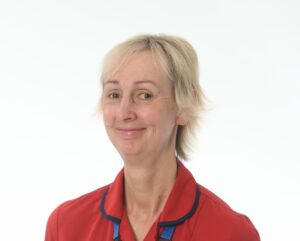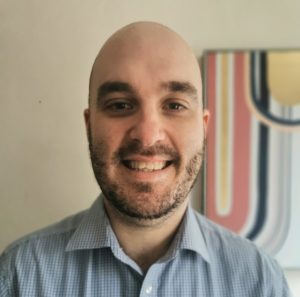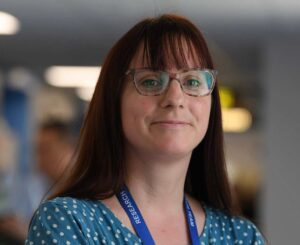Research teams at ESNEFT
We have very experienced team leaders who are experienced in managing research across two hospital sites and in the community.
Our team leaders oversee the day-to-day running of studies and ensure patients taking part receive the best care possible. Many patients involved in research are seen in hospital for many years. Our research nurses and practitioners are often the first points of contact for these patients.
Research leadership team
Director of Strategy, Research and Innovation and executive lead for Research and Development
Dr Shane Gordon
Email Shane
Clinical director of research, reports to Trust Board Director
Dr Richard Smith
Email Richard
Assistant director of research and development, reports to clinical director of research
Frances Farnworth
Email Frances
Clinical research and development lead, reports to assistant director of research
Nyasha Nago
Email Nyasha
Research and Development teams
Many of our doctors, nurses and practitioners are involved in national and international research studies. We have nine teams in the department. Specialist research nurses, facilitators, practitioners, grant coordinators and admin staff support research.
Our research programmes run in all areas of healthcare. This includes diagnosis, treatment and care. Patients may be offered new treatment or procedures as part of a study.
The same clinical and research teams care for our patients during their treatment as well as during follow ups for the study.
Research teams at Colchester

Celine Driscoll: research radiographer and oncology clinical trials team leader
Celine is an experienced radiographer. She leads an enthusiastic and committed team responsible for looking after the complex needs of oncology patients on clinical trials.
She oversees ongoing studies and works with different departments in the hospital to successfully progress research.
Celine’s role includes identifying and facilitating new research. She also ensures the mix of studies is balanced to meet the needs of as many potential cancer patients as possible.
Celine spent 10 years working on radiotherapy machines, so understands the challenges of different patients and how research may help them.
Celine enjoys the opportunities open to patients through trials at what can be a very difficult and challenging time in their lives. She considers it a privilege to work in cancer research.

Jo Rosier: research team lead haematology
Jo leads the haematology clinical research team based at Colchester Hospital. She’s an experienced research nurse with a clinical background in orthopaedics, renal medicine, vascular surgery, diabetes and endocrinology, combined with recent senior operational management.
Jo works in all aspects of participant care in commercial and academic research. She oversees the planning of recruitment strategy and study visits. Jo has 10 years’ experience as a senior research nurse in diabetes research and as a national trial coordinator supporting a CTIMP commercial trial (Clinical Trials of Investigational Medicinal Products). She also has a background of good clinical practice across the Eastern region and has a particular interest in clinical governance. She has always been passionate about embedding a culture of research into clinical practice.

Alison O’Kelly: senior research nurse/team leader
Alison qualified as a nurse in 1986 and has worked in many disciplines before moving to specialise in stroke 20 years ago. She has gained additional qualifications in stroke management.
As a dedicated stroke nurse, Alison was aware of how various research studies have benefited patients. She has been active in clinical research in stroke for many years. She has seen the results of research studies and the benefits in clinical practice.
Alison leads the Generic research team at Colchester Hospital covering a wide range of disciplines. This has enabled patients to have the opportunity to take part in the research studies.
Alison is one of our research EDI (Equality Diversity and Inclusion) leads. Together with Bally she ensures we adapt to enable us to recognise and respect barriers that exist.
Research teams at Ipswich

Paul Ridley: senior clinical research practitioner/team leader
Paul Ridley joined Ipswich Hospital in 2003. He leads the cancer and dermatology research team as senior clinical research practitioner.
Paul has a BSc (Hons) in Biotechnology. Before his involvement in research he had a number of academic and industry research posts. These were in histopathology, cancer cell biology, genomics and biotechnology.
There are usually 25 or more studies open for eligible patients to join at any one time and many more in the follow-up phase. These are a mix of observational and interventional studies across the main tumour sites and various skin conditions. The majority of these studies are academic but there are some commercial studies too.
 Stephanie Bell: senior research nurse/team leader
Stephanie Bell: senior research nurse/team leader
Stephanie has been leading the Generic Research Team at Ipswich Hospital since 2016. She has over thirty years of nursing experience, specialising in acute care.
Her prior experience includes working as a neurosurgical and critical care research nurse. She had an emphasis on observational and interventional research in device, CTIMPS and management pathways.
The Generic Research Team, which she co-leads, cover a wide range of studies. These studies involve recruiting outpatients and inpatients across many areas of healthcare. This means working collaboratively with other clinicians across the Trust. Stephanie is passionate about introducing research to new specialities. She is keen for the community to have the opportunity to be a part of research.

Bally Purewal: lead genetic research practitioner
Bally joined the Generic Research team in 2009 and is an experienced clinical research practitioner (CRP). As well as leading her own portfolio of clinical research studies, Bally is one of the team leads for the Generic Research Team at Ipswich Hospital.
The Generic Research Team deliver observational and interventional studies in a range of specialities: A&E, anaesthetics, cardiology, critical care, general surgery, midwifery pathology, nephrology, neurology, orthopaedics, paediatrics, respiratory, rheumatology, spinal, and stroke. The team undertake both academic and commercial research trials.
Part of Bally’s role is to identify and support the opening of new studies, and work with relevant departments to ensure arrangements are in place to deliver trials successfully.
Bally is also one of the regional CRP leads and supports her fellow CRPs with completing their applications for CRP registration. A huge part of this role is to support with the reflective writing pieces and provide feedback on the application process.

Jane-Zhixin Jiao: senior diabetes research nurse/team leader
Jane has an MSc in Clinical Research and worked in a diabetes research unit in London for three years. She joined the diabetes research unit in Ipswich in 2009.
Jane is involved in all aspects of trial-related patient-centred care in both commercial and academic research. She is the first point of contact for any queries from study participants or sponsors. Jane leads on planning the logistics and the smooth running of the studies – from the demands of planning recruitment strategies to organising clinics.
Jane has a proven track record of delivering studies on time and on target with experience in working with pharmaceutical companies with a special interest in diabetes, including interventional and observational studies, but also other disciplines such as renal, liver and cardiac. Jane leads an amazing team who are caring, kind, respectful and knowledgeable.
 Ashley Elden: senior R&D facilitator/team leader
Ashley Elden: senior R&D facilitator/team leader
Ashley is an experienced R&D facilitator who leads a dedicated support team across all ESNEFT sites with a ‘can do’ attitude.
Ashley’s team set up and manage research studies that are sponsored and funded by external organisations. They also support research designed and conducted by staff and collaborators. Ashley and his team work closely with the research delivery teams as well as our clinical departments.
Ashley is committed to the ESNEFT belief of looking at ways to improve and evolve. He completed a Leadership and Management Apprenticeship in 2023 gaining a distinction.
 Dr Katharine Fowler: research and grant co-ordinator/team leader
Dr Katharine Fowler: research and grant co-ordinator/team leader
Katharine has a PhD in Clinical Exercise Physiology. She has over 15 years’ experience working within research in various settings including the NHS and military.
As a team leader she is involved in the management of ESNEFT’s sponsored and collaborative research projects. Katharine is there from initial study concept and design, to the delivery of the study. The team also support researchers with grant applications for funding.
Katharine is passionate about research studies that focus on patient benefit. She is keen for research to evolve to enable all healthcare professionals who are interested to be fully supported with their aspirations.

Andrea Hattrell-Caney: clinical academic research practitioner
Andrea is a clinical academic research practitioner working for the Synapse Centre at ESNEFT.
Andrea is a HCPC registered occupational therapist with extensive NHS and private sector experience in paediatrics and learning disabilities. She is a certified advanced sensory integration practitioner and has additional training in sensory attachment.
Andrea trained as an occupational therapist at the University of Essex and graduated in 2015. She has undertaken post-graduate certifications with the University of Ulster and Sheffield Hallam University.
Andrea is currently undertaking a post graduate research degree (MPhil with progression to PhD) as a senior research fellow with Anglia Ruskin University, within her current split clinical and research role.
Andrea’s areas of interest include sensory processing and neurodevelopment. Her aims are to promote and deliver research, evidence-based practice and education, to enable children to engage in the activities and experiences that are important to them.

Alix Willmore: clinical academic research practitioner
Alix is a clinical academic research practitioner working for the Synapse Centre in the area of neurodevelopmental disability.
She is working in a split research and clinical post alongside Anglia Ruskin University completing a PhD. She trained in speech and language therapy at the University of East Anglia and graduated in 2014. She has worked with a wide range of children in the NHS and independent practice, working in special needs and mainstream schools. Her most recent role focused on autism assessments at ESNEFT for children aged 2-19.
Her main interests are focused on early intervention in autism and parent child interaction/parent education. Her aims are to help parents feel empowered when working with their own children; they are the experts and should be made to feel this way.
Through research, she hopes to continue utilising evidence-based ways of practising directly with children and supporting education settings to deliver and evaluate key intervention programmes to aid the development of communication skills.
Back to top

 Stephanie Bell: senior research nurse/team leader
Stephanie Bell: senior research nurse/team leader Ashley Elden: senior R&D facilitator/team leader
Ashley Elden: senior R&D facilitator/team leader Dr Katharine Fowler: research and grant co-ordinator/team leader
Dr Katharine Fowler: research and grant co-ordinator/team leader